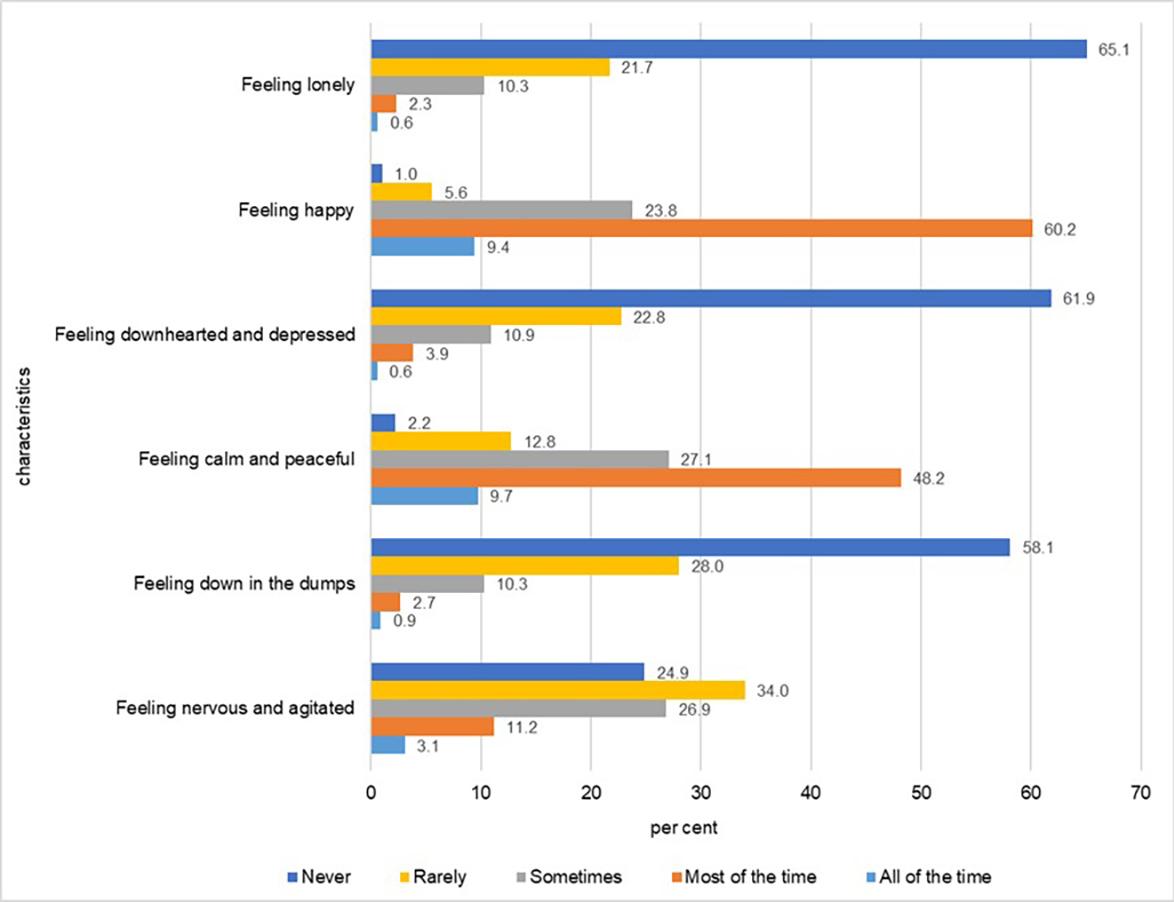Commitment to well-being
NSO data confirm that government policies promoting well-being in health and social care are extremely important

The importance of health and well-being, closely linked together, is the foundation of the lives that hold people together through their experiences.
Well-being is not just the absence of disease or illness. It is a complex combination of a person’s physical, mental, emotional and social health factors. Well-being is strongly linked to happiness and life satisfaction.
Why does it matter? Well-being is important because it adds years to a person’s life, is associated with positive health behaviours in adults and children (weight, smoking, alcohol/drug use), improves recovery from illness and may ultimately reduce the healthcare burden in society.
Nowadays, experts use the biopsychosocial model to understand our health and wellbeing. This model of wellness examines how the three factors - biological, psychological and social - affect our health and wellness.
The BPS model stresses the interconnectedness of these factors and demonstrates the importance of maintaining wellness in all aspects of our lives.
It is therefore welcome news that the National Statistics Office has just published a set of data that throws light on various aspects of well-being, quality of life and health in Maltese society in 2023. The data is derived from a survey of some 5,080 households comprising almost 11,000 residents aged 16 years and over.
One significant finding was that the majority of persons living in private households (79.5 per cent) perceived their general health as being good. It is also pertinent to note that even a majority of persons at risk of poverty or social exclusion (67.4 per cent) said so.
It is very satisfying that the overall percentage has improved by some six per centage points over three years, while that of vulnerable people has improved by 11 percentage points.
Of course, one cannot ignore the 29.6 per cent of people who stated that they suffer from a chronic illness or condition, most of whom were aged 65 years or over, are at risk of poverty or social exclusion and, then, to be female.
This underlines the importance of having a health system that addresses their needs, which appears to be working in that their percentage has gone down by two percentage points.
Again, Malta’s health system is delivering, in that the share of persons who reported unmet needs for medical or dental treatment has dropped by four-fifths over three years.
 Source: NSO
Source: NSOPerceived levels of satisfaction regarding well-being score 7.4 out of 10 for overall satisfaction, those relating to people’s financial situation score 6.9 and satisfaction with the current job scores 7.7. Males tend to be more satisfied on the whole than females, while people under 17 or over 65 tend to be more satisfied than those in age brackets in between.
It is understandable that satisfaction scores are lower among those at risk of poverty or social exclusion but not significantly so.
Naturally, life satisfaction is positively related to income levels, being higher for those earning over €24,000 per annum compared to those earning below €12,200, though unexpectedly hardly varying between other income brackets.
The current job and personal relationships of people seem to predominate over their financial situation and time use in overall life satisfaction.
Perceived levels of satisfaction regarding well-being score 7.4 out of 10- Frans Camilleri
The importance of family relationships in the well-being of the Maltese people is evident from data which shows that the share of persons receiving material or non-material help from relatives is just under 94 per cent.
This solidarity is also inter-generational, the share being stable between the ages of 18 to seniority.
There is reason to think that, while the Maltese attach huge importance to the family, their attitude towards others is coloured by lack of trust. In fact, measured on an 11-point Likert scale (0 = no trust, 10 = complete trust), people put their trust in others at 5.1, the most non-trusting being children under 18 years and those who are at risk of poverty or social exclusion.
Feelings of exclusion from society are low at 2.0, again being higher among those at risk of poverty while senior citizens seem particularly prone to it.
The NSO data confirms that government policies promoting well-being in health and social care are extremely important, not just for individuals but to support workers, carers and care providers too.
The commitment through the government’s various programmes and initiatives ensures that outcomes can continue to improve.
 Frans Camilleri
Frans CamilleriFrans Camilleri is an economist.